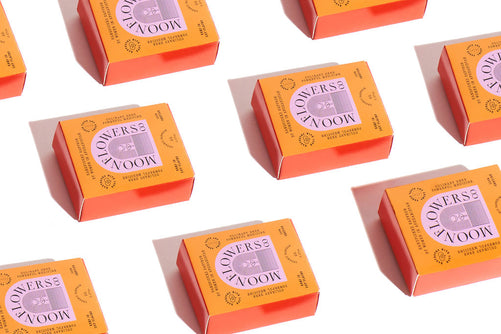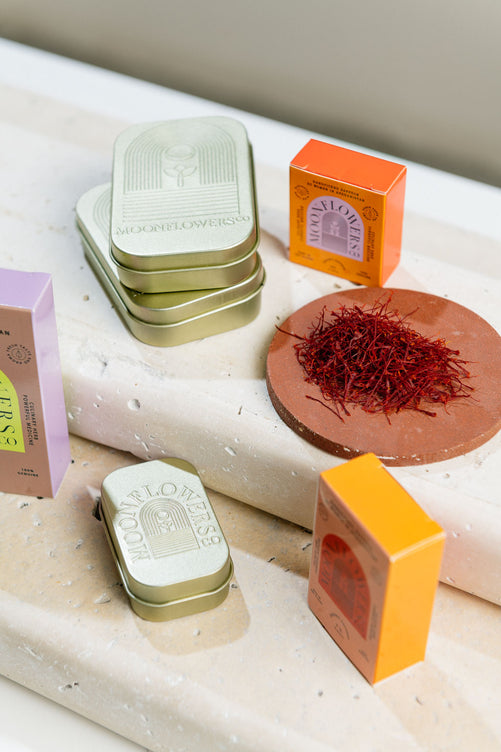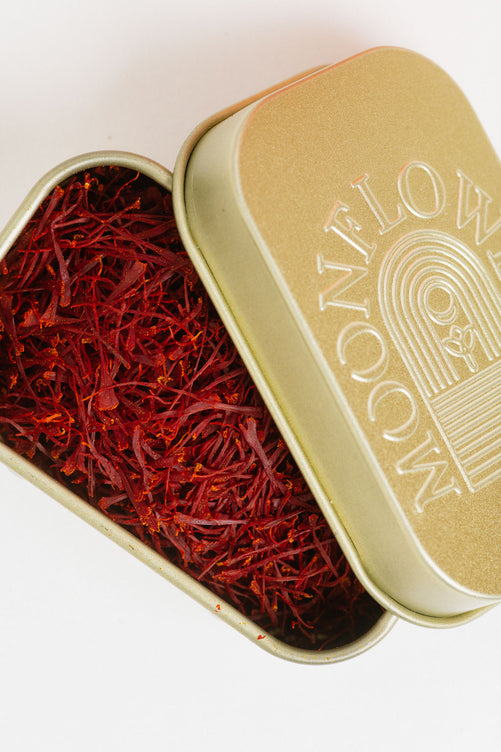journal
5 health benefits of saffron

Saffron is known to have an ancient history in herbal medicine. Recent studies have shown that saffron has anti-inflammatory and anti-stress properties. These properties improve your mood.
What are the properties of saffron?
Saffron is a powerful anti-oxidant as well, these are molecules that protect your cells against free radicals and oxidative stress. Another study has proven that saffron may at as an aphrodisiac, that helps boost your libido.
1- Antioxidant Properties
A study found the antioxidants crocin, crocetin, safranal, and kaempferol in saffron. These antioxidants work together to aid with protecting you from oxidative stress that can cause damage to your brain cells.
2- May Help with Depression & Anxiety
Saffron naturally contains many of the properties that medication used to treat depression and anxiety (such as fluoxetine, imipramine, and citalopram) use.
3- Increases vitality
In low libido, it aids as a sexual stimulant and can be consumed in a dose of a pinch in a glass of milk at bed time. It has also been known to act as an aphrodisiac for some women.
4- Improves nerve function
The high content of vitamin B6 helps form red blood cells and assures nerves will function as they should.
5- Improves Sleep Quality
Saffron contains magnesium which can calm the nerve and promotes sleepiness. In ayurvedic medication, saffron is known to have a sedative effect on the body.
Nutrition faqs of saffron
Saffron has many health benefits. Drinking golden saffron tea as a daily ritual may help improve your mood. Research has shown that saffron helps in treating mild depression. The saffron stigmas are rich in antioxidants that aid your body against oxidative stress.
Saffron is also a great alternative to medication in treating PMS symptoms. Many women suffer from PMS symptoms that could include mood swings, headaches, fatigue, bloating. A review in the Journal of Psychosomatic Obstetrics & Gynecology looked at herbal treatments for PMS. In this review saffron is listed as being an effective treatment for premenstrual symptoms. Researchers found that 15 mg of saffron twice daily is effective in relieving PMS symptoms.
Crocin and crocetin are two of the elements in saffron which researchers believe may help your memory function and learning ability. A study published in Phytotherapy Research found that saffron was able to improve learning and memory problems. This means that saffron has potential in treating diseases that affect the brain such as Alzheimer’s and Parkinson’s.

Source: https://fdc.nal.usda.gov/
Ways to Use Saffron
Our saffron threads are the super-negin type which means it’s the long-stemmed stigmas of the crocus sativus. When you order our saffron you will receive a tin box with saffron threads. While there are many ways to use saffron in most recipes, we will share our trick to get the most flavor and color out of your saffron threads.
The easiest way to add saffron to your recipes is to grind the saffron. You will need a mortar and pestle (alternative if the back of a spoon), some kosher salt or sugar.
- Take a pinch of saffron, which is about 15 threads, and add it to the mortar.
- Before grinding the saffron threads with the mortar and pestle, you may add a pinch of kosher salt or sugar which will act as an abrasive to grind the saffron into a fine powder.
- After grinding the saffron with sugar or salt, you may add a few spoons of liquid to let the saffron steep and release more flavor and coloring.
The best way to start your recipe is to grind the saffron first and let it steep for 30 minutes to about 1 hour in the liquid. This will help enhance the flavor and color of saffron in your recipe.

Healthy Recipes with Saffron
Now that you know how to get the most flavor and color out of the saffron we’ll share some healthy recipes for you to enjoy and elevate your health.
PMS Tea
Vegan Rice Pudding
Saffron Lemon Water
Saffron Latte
Golden Tea
Saffron Infused Water
Saffron Iced Tea
Saffron + Citrus Chia pudding















